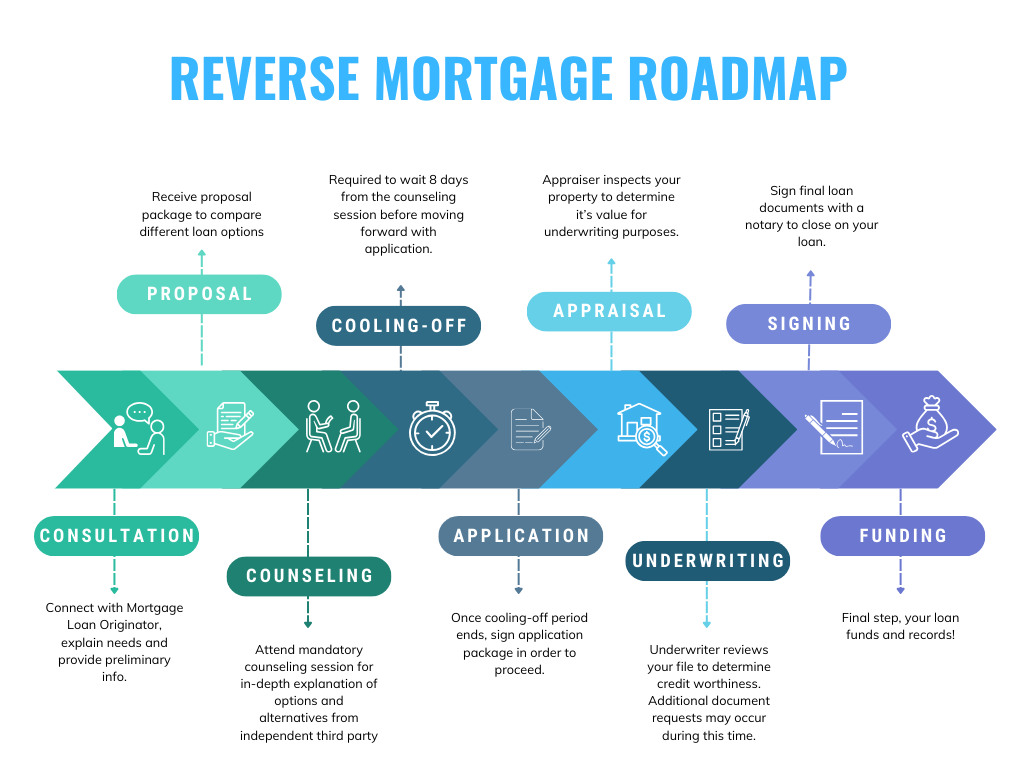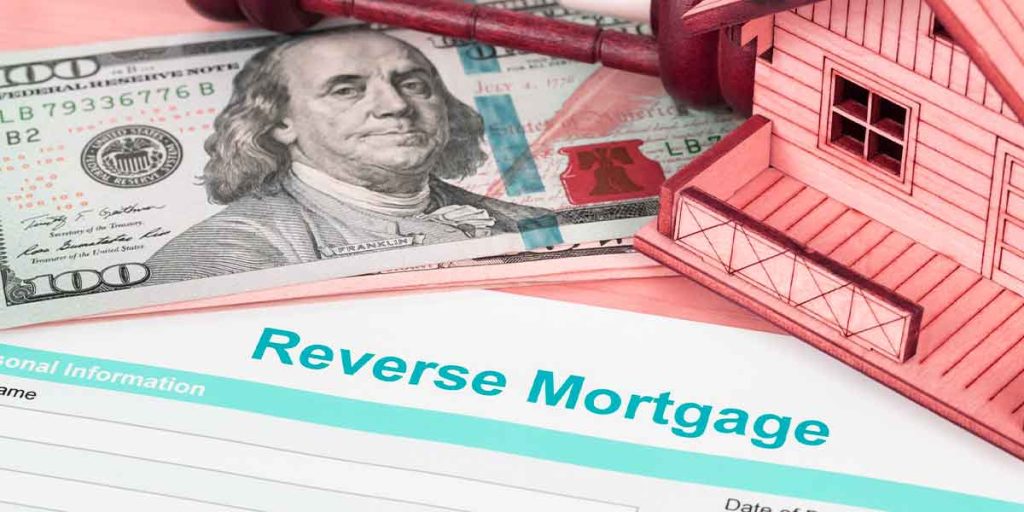Steps to Successfully Purchase Reverse Mortgage for Your Property
Steps to Successfully Purchase Reverse Mortgage for Your Property
Blog Article
Empower Your Retired Life: The Smart Means to Purchase a Reverse Mortgage
As retirement strategies, numerous individuals seek effective methods to improve their monetary freedom and health. Among these methods, a reverse home loan becomes a sensible option for property owners aged 62 and older, enabling them to use their home equity without the necessity of regular monthly repayments. While this economic tool provides numerous advantages, including boosted capital and the possible to cover important expenses, it is important to recognize the details of the application procedure and vital factors to consider included. The next steps may expose how you can make a well-informed decision that could considerably affect your retirement years.
Recognizing Reverse Home Loans
Understanding reverse mortgages can be critical for homeowners seeking monetary adaptability in retirement. A reverse mortgage is a monetary product that allows eligible homeowners, usually aged 62 and older, to convert a part of their home equity right into money. Unlike traditional home mortgages, where borrowers make regular monthly payments to a lender, reverse home loans enable property owners to get payments or a lump amount while keeping possession of their building.
The amount available through a reverse home mortgage depends upon a number of elements, consisting of the homeowner's age, the home's value, and present passion rates. Importantly, the lending does not need to be repaid up until the homeowner sells the home, leaves, or passes away.
It is important for potential debtors to comprehend the implications of this financial product, including the effect on estate inheritance, tax obligation factors to consider, and ongoing obligations associated with property upkeep, tax obligations, and insurance coverage. In addition, counseling sessions with certified specialists are usually required to make certain that borrowers fully understand the terms and problems of the funding. Overall, a complete understanding of reverse mortgages can empower home owners to make enlightened decisions about their monetary future in retirement.
Advantages of a Reverse Mortgage
A reverse home loan supplies numerous engaging advantages for eligible homeowners, specifically those in retired life. This financial tool permits seniors to transform a portion of their home equity right into money, supplying crucial funds without the need for month-to-month home mortgage payments. The cash gotten can be made use of for various purposes, such as covering clinical expenditures, making home renovations, or supplementing retired life income, thus improving overall monetary adaptability.
One substantial benefit of a reverse home mortgage is that it does not require payment till the house owner leaves, sells the home, or passes away - purchase reverse mortgage. This function makes it possible for senior citizens to preserve their lifestyle and meet unexpected prices without the problem of monthly settlements. Furthermore, the funds obtained are generally tax-free, enabling homeowners to utilize their money without anxiety of tax ramifications
Furthermore, a reverse home loan can provide peace of mind, knowing that it can function as a monetary safety internet throughout challenging times. House owners additionally retain ownership of their homes, guaranteeing they can continue residing in an acquainted setting. Eventually, a reverse home mortgage can be a calculated monetary resource, empowering retired people to handle their funds effectively while enjoying their gold years.
The Application Process
Navigating the application process for a reverse mortgage is an essential step for house owners considering this financial alternative. The initial stage entails evaluating eligibility, which normally requires the homeowner to be a minimum of 62 years of ages, own the residential or commercial property outright or have a reduced home loan balance, and occupy the home as their main house.
Once eligibility is confirmed, homeowners need to undergo a therapy session with a HUD-approved counselor. This session makes certain that they completely recognize the implications of a reverse mortgage, including the obligations included. purchase reverse mortgage. After finishing therapy, candidates can continue to gather essential documentation, consisting of evidence of revenue, possessions, and the home's value
The following step involves sending an application to a lender, that will assess the financial and residential property credentials. An appraisal of the home will additionally be performed to identify its market value. If accepted, the lending institution will certainly offer funding terms, which must be reviewed very carefully.
Upon acceptance, the closing why not find out more process follows, where last documents are authorized, and funds are paid out. Comprehending each phase of this application process can considerably improve the homeowner's self-confidence and decision-making relating to reverse home mortgages.

Trick Factors To Consider Before Getting
Getting a reverse home loan is a significant financial decision that calls for careful factor to consider of several web link essential elements. First, recognizing your qualification is crucial. Homeowners should be at the very least 62 years old, and the home must be their key house. Reviewing your economic demands and objectives is similarly vital; identify whether a reverse mortgage straightens with your long-lasting plans.

A reverse mortgage can affect your eligibility for specific federal government advantages, such as Medicaid. By thoroughly evaluating these factors to consider, you can make a much more educated choice concerning whether a reverse home loan is the ideal financial approach for your retired life.
Maximizing Your Funds
When you have safeguarded a reverse home loan, efficiently managing the funds comes to be a top priority. The versatility of a reverse home loan allows home owners to use the funds in different methods, but strategic planning is vital to maximize their advantages.
One key strategy is to create a budget that outlines your regular monthly expenses and monetary objectives. By recognizing required costs such as health care, residential property tax obligations, and home maintenance, you can designate funds appropriately to guarantee long-term sustainability. Furthermore, take into consideration utilizing a portion of the funds for financial investments that can generate income or appreciate with time, such as shared funds or dividend-paying supplies.
An additional vital element is to maintain a reserve. Alloting a reserve from your reverse home mortgage can aid cover unanticipated expenses, giving satisfaction and financial stability. Consult with a financial advisor to discover feasible tax effects and how to incorporate reverse mortgage funds into your general retired life method.
Inevitably, sensible management of reverse mortgage funds can improve your financial safety, enabling you to appreciate your retired life years without the anxiety of monetary unpredictability. Mindful planning and informed decision-making will certainly make sure that your funds work effectively for you.
Verdict
In final thought, a reverse home loan presents a sensible economic approach for seniors seeking to improve their retired life experience. By converting home equity right into easily accessible funds, individuals can attend to necessary costs and safe and secure extra monetary sources without sustaining month-to-month settlements.
Comprehending reverse mortgages can be important for homeowners looking for financial adaptability in retired life. A reverse mortgage is a financial product that allows qualified house owners, usually aged 62 and older, to transform a portion of their home equity into cash money. Unlike typical home loans, where debtors make regular monthly settlements to a lending institution, reverse home mortgages enable property owners to obtain settlements or a lump amount while web preserving possession of their home.
Overall, a complete understanding of reverse home mortgages can encourage homeowners to make educated decisions concerning their monetary future in retired life.
Consult with a financial expert to explore feasible tax obligation implications and just how to incorporate reverse home loan funds into your total retirement method.
Report this page